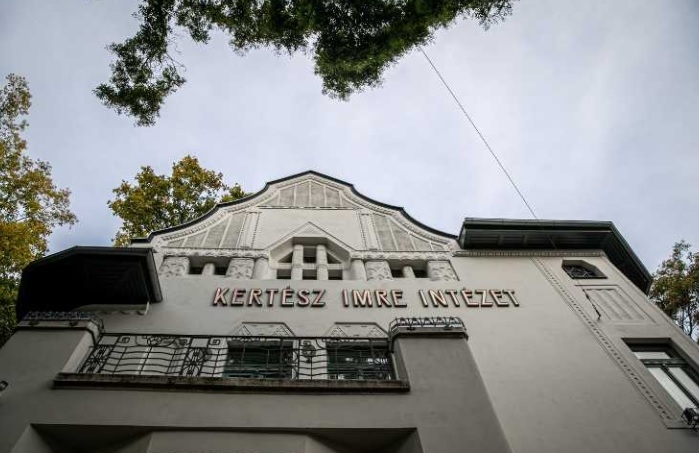Imre Kertesz was a man of great intellect, who could not be pigeonholed. Without any doubt, his legacy has to be established in Budapest – and not in Berlin – because this is his city, Prime Minister Viktor Orban said at the opening of the Imre Kertesz Institute in Budapest on Saturday.
The premier has recalled several quotes from the Nobel Prize-winning author, who died in 2016. In one of them, Imre Kertesz calls anti-Semitism an infection, a pandemic, an ideological epidemic, “the entertainment of dirty souls ending in murder.”
Mr Orban also recalled a thought by Kertesz saying that “a species of animal called a multicultural society does not exist.”
He believed that answers to the issues of European civilisation should be sought only within the framework of its own civilisation, importing foreign solutions would not work, neither in the case of spirit nor in the case of people, the premier added.
Mr Orban quoted the author: “the liberal spirit, which originally wanted the best, led the intelligentsia into nihilism and the masses into incompetence with its postmodern unprincipledness.”
The PM recalled that after Imre Kertesz had received the Nobel Prize for Literature, heated and not very high-quality debates took place in Hungary, with especially the right and its more radical wing thinking the Nobel Prize was a huge success, but “everything is relative, several great writers did not receive it” between the two world wars, for example, and they also said that apparently Imre Kertesz only received the award because his novel, Fatelessness, was about Holocaust.
This discussion put Imre Kertesz “into a category, where he never wanted to belong to and gave no reason to put him in there,” because no limit can be put on his deep intellect, Viktor Orban declared.
Regarding the author’s life, he underlined: Imre Kertesz had chosen the strategy of being a total outsider during the communism, he wanted to live a clean life, without being compromised. He thought “one should not take part in this.”
“He chose ‘inland emigration’ in Budapest,” Mr Orban put it.
The PM emphasized that since 2010, developments and investments in Budapest had exceeded 4 thousand billion forints (11.2 billion euros). The difference between the capital a decade ago and now is obvious.
Since “we are a civilised nation,” Hungary has overdone itself in spending on culture in the recent years, Mr Orban said, citing Liget Budapest project, subsidies for the film industry and reconstruction of the State Opera House.
Maria Schmidt, chief director of the Public Foundation for the Research of Central European History and Society, managing the Imre Kertesz Institution, recalled: the idea came three years ago to study the part of the legacy of Imre Kertesz which is not preserved elsewhere in an own institution and to create an institution that takes care of the memory and legacy of the author duly.
Prime Minister Viktor Orban had backed the plan from the very beginning, Ms Schmidt emphasized.

